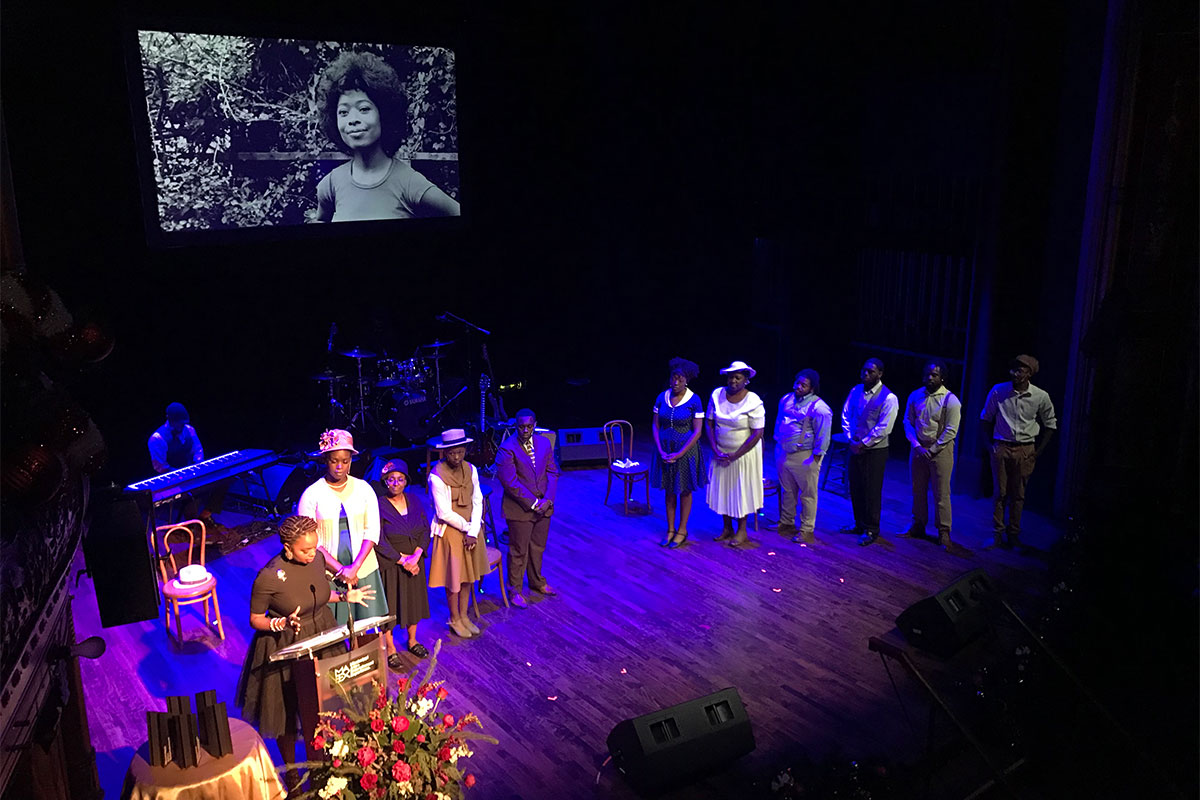MERIDIAN, Miss.—When motivational speaker and success coach Dan Duster comes across a hurdle, the usual self-nudge won’t quite cut it. Instead, he channels the spirit of an ancestor.
“When I consider any problems that I’m facing, they’re minute compared to what she went through. Instead of ‘Man up,’ I say, ‘Ida up!’” he shares with a chuckle and a nod to his great-grandmother: investigative journalist, activist and anti-lynching crusader Ida B. Wells. “Braver than most men,” he hails her.
He and siblings Michelle Duster and David Duster visited Meridian on Dec. 15, 2022, to celebrate Wells’ induction into The MAX Hall of Fame, as part of the 2022 class that also included soul-music pioneer Sam Cooke; composer, musician and “Father of the Blues” W.C. Handy; Pulitzer Prize-winning author and poet Alice Walker; and Grammy Award-winning country music artist and archivist Marty Stuart.
Since opening in downtown Meridian in 2018, The Mississippi Arts + Entertainment Experience has saluted 33 famed Mississippi-born and -connected individuals who have significantly contributed to the fields of music, visual and performing arts, literature, civil rights, and other cultural areas.
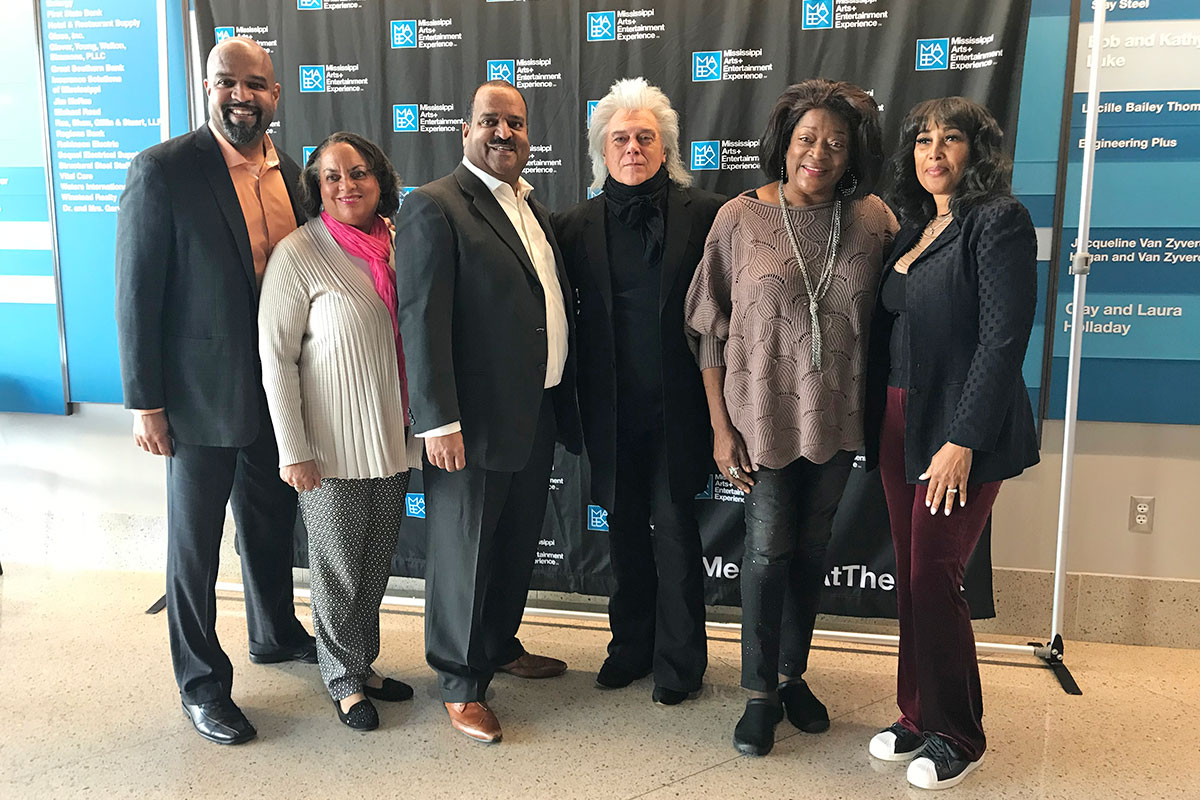
With three of 2022’s five inductees having long-since passed on, both lineage and legacy mark the day of celebration. Descendants of Wells, Cooke and Handy stand in for their history-making family members and share personal insights, too; they proudly embrace the hall-of-fame honor, the Mississippi paths their forbearers trod and their ancestors’ visionary achievements.
‘The Truth Was Powerful’
Carla Cooke, the youngest daughter of “Father of Soul” Sam Cooke, is also a captivating performer with rich, soul-stirring vocals. Clarksdale-born, Sam Cooke “was founded in gospel music, which was started in Mississippi with his father being a preacher here,” she says. “It is a blessing to be a part of his great legacy. … So many people still love his music and still are inspired by him and his songs, and I’m just very proud to be his daughter and to follow in his footsteps in the music industry.”
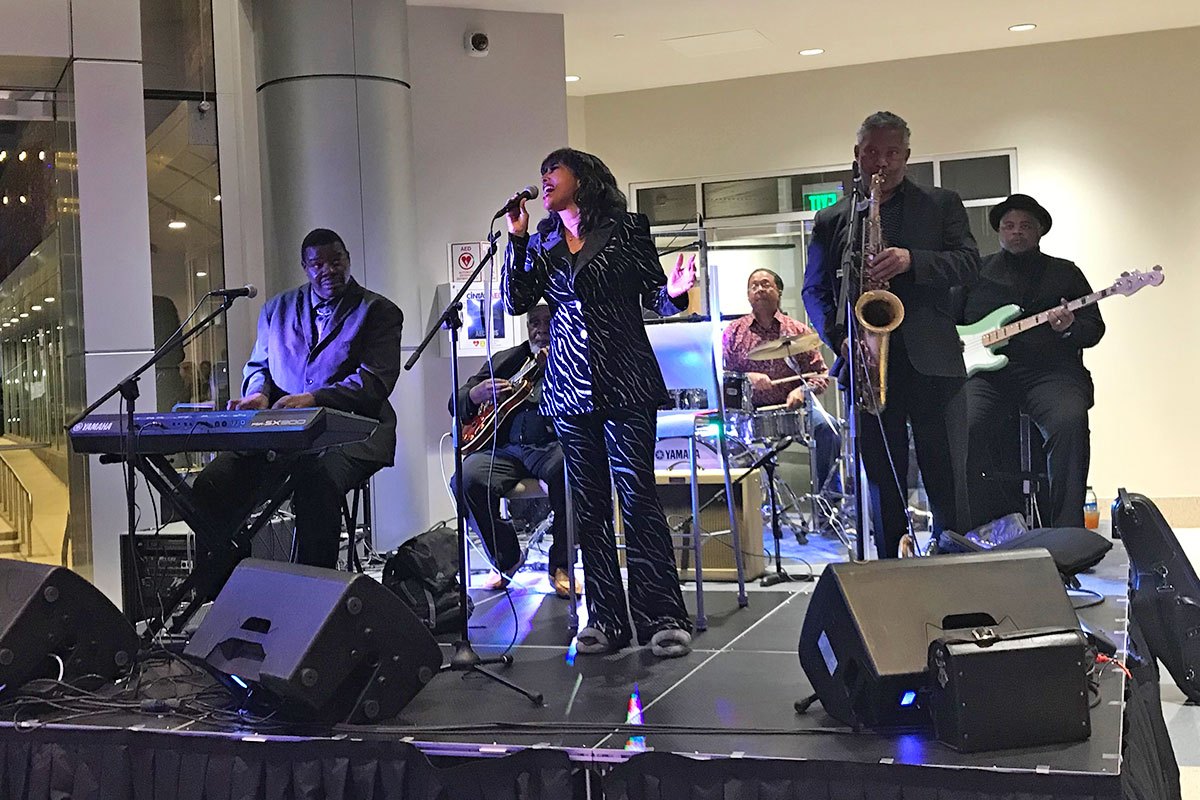
Sam Cooke’s protest song, “A Change Is Gonna Come,” is one of his most enduring creations, Carla says. “Everybody is moved by that song. It touches so many people, and it’s still relevant today,” she tells the crowd attending the induction ceremony. That evening, the songstress supports her claim by belting out the meaningful lyrics to her father’s song at the nearby MSU Riley Center to exuberant applause.
Michelle Duster pegs the “unwavering commitment to truth and justice” of her great-grandmother, Holly Springs native Ida B. Wells, as the writer’s biggest legacy.
“She used her voice as a journalist to expose realities and truths even when it was uncomfortable and even when it brought danger to herself, because she believed so much that if people knew the truth, then that would lead to justice,” Duster says of Wells.
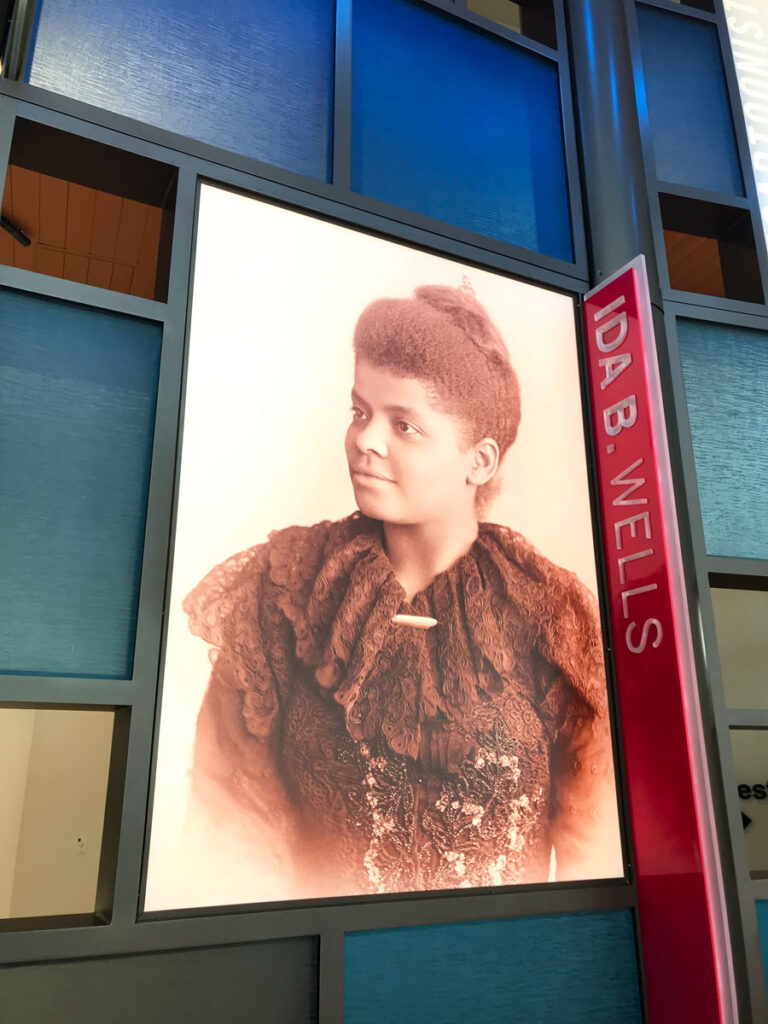
As a writer, speaker, professor and champion of racial and gender equity, Duster also points to Wells’ business savvy and self-advocacy. “She refused to allow people to disrespect her,” Duster says. “She felt strongly that she deserved the best, and as a woman, to me, that’s something that resonates. She spoke out for herself. She didn’t allow anyone to make her feel small, or to feel like she didn’t belong or to feel like her voice wasn’t important.”
Ida B. Tomlin, MAX director emeritus, channels Wells’ voice in a reading at the ceremony.
Calling Wells “the epitome of a patriot” in her ceremonial remarks, Michelle Duster emphasizes the continued inspiration and relevance of her ancestor’s work and example.
“She realized that the truth was powerful, that statistics and data and names and details of what really happened to victims of domestic terrorism could impact public opinion and eventually change laws,” Duster says. “She was one of the first (to say), ‘Say her name,’ ‘Say our names,’ ‘Black lives matter’—in the 1890s!”
Music’s ‘Black Is Beautiful’
Carlos Handy, Texas Southern University physics professor as well as the president and CEO of Handy Brothers Music, finds much to admire in his grandfather’s critical-thinking skills; W.C. Handy recognized the significance of the blues, communicated it widely and took it to new levels of popularity.
“He was very cultured, instinctively educated, … very philosophical,” Handy says of the composer, musician and songwriter whom some credit as the “poet of the blues.”
Seeking inherited personality traits, Carlos Handy once asked his grand uncle, “Tell me something about my grandfather, because I like music, but I like physics more.” In response, the family member told Carlos, “Well, your grandfather used to be an editor of a newspaper.”
“What that said to me was that he was an observer of the world around him. … That’s his innate ability, to understand what’s going on around him, to digest it, to process it and to take it and try to make something with it,” Carlos explains to the audience.
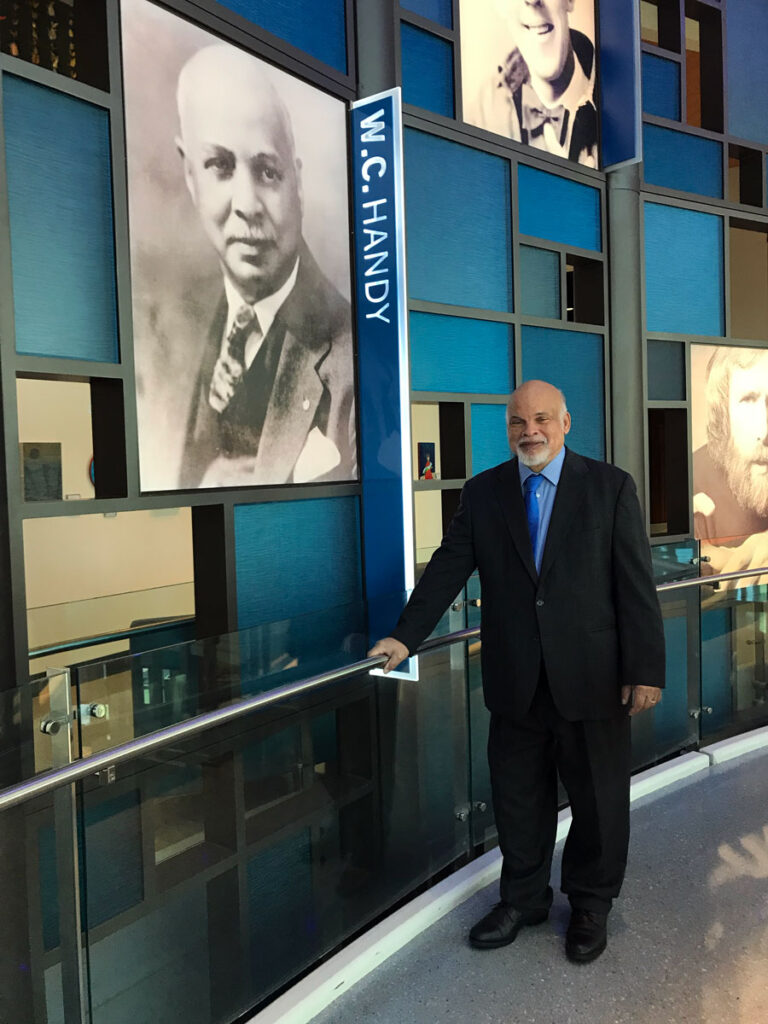
W.C. Handy’s classic “St. Louis Blues,” with Alphonso Sanders on trumpet at the ceremony, crystallizes his legacy with rhythmic verve, and Carlos Handy further illuminates his groundbreaking importance. “Up until his blues were published, American music, basically, was an adaptation of European music,” he says.
“There were those—(Handy’s early business partner) Harry Pace, W.E.B. Du Bois and others, university-trained Blacks—who felt that the way for Blacks to assert themselves, to be the equal of whites, was to beat them at their own game,” Carlos says, offering examples like becoming doctors, lawyers, engineers and practitioners of classical music. “What they wanted to do was imitate what the white man was doing. They did not want to create, and that’s where Handy steps in.”
“Handy was the first African-American to champion ‘Black is beautiful’ when it came to music, … That’s why he’s a genius,” Carlos says.
‘Mississippi Called Me’
A montage of scenes and songs from “The Color Purple” musical, which Meridian Community College Arts & Letters organized in partnership with Rosebud Productions, salute Alice Walker’s best-known novel. Ebony Lumumba, speaking eloquently of the author’s reach, reminds the crowd of Georgia-born Walker’s Mississippi links; he was a writer-in-residence at Tougaloo College and at Jackson State University (where Lumumba serves as an associate professor of English). She invokes Walker’s simple declaration: “Mississippi called me.”
Walker, not present at the ceremony, accepts the honor via pre-recorded video, and notes the company of her fellow inductees: Handy, Cooke and Wells. She references an old movie, “Band of Angels,” and the symbology that resonates with her.
“To come to Mississippi now, and to be with the people in this way, is to join another band of angels,” she says, noting that angels are not always all pious beings with hands perpetually folded in prayer. “Some of them came brandishing swords: swords of light, swords of wisdom, swords of kindness and swords of love, but not an easy love, you know. They came with fierce love—fierce love of the people.”
For Marty Stuart, whose MAX Hall of Fame induction comes on the heels of his 2021 entry to the Country Music Hall of Fame, legacy is very much an active process.
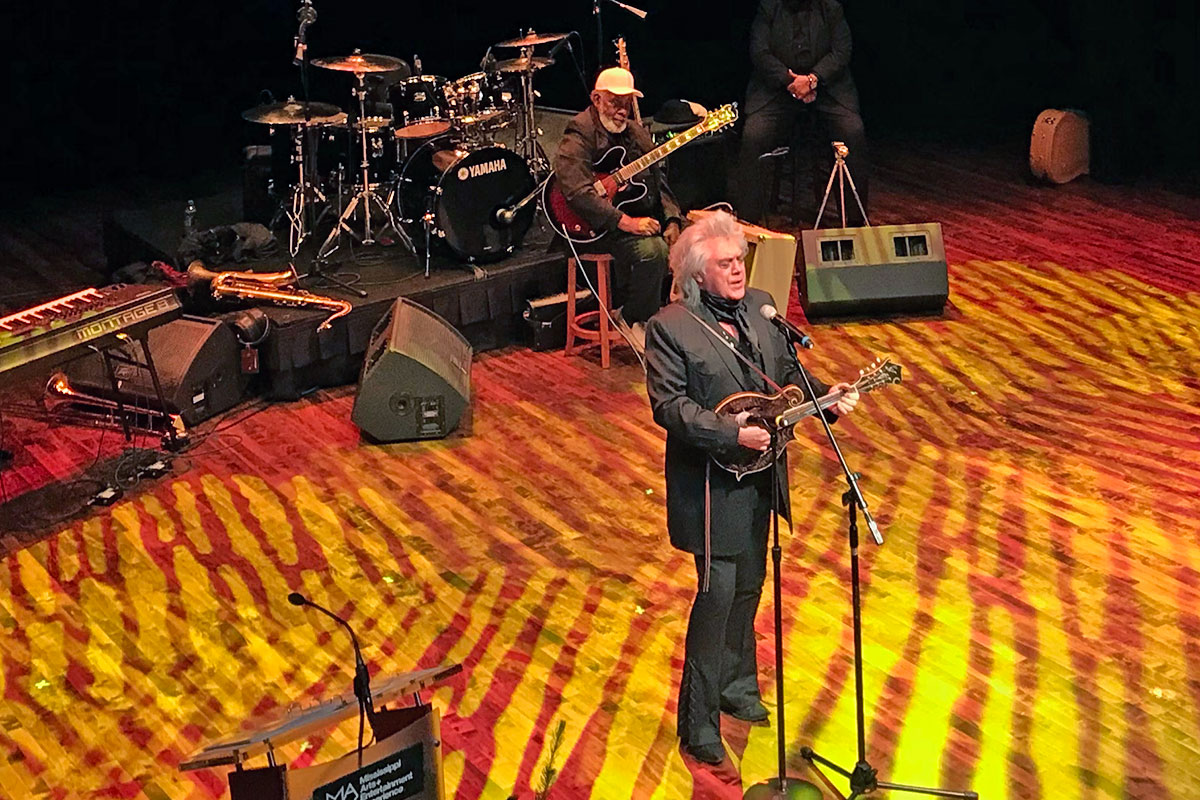
“The job is now passing it on,” he says. “It’s kind of a three-phase thing: preserve and protect the past, and make sure the old-timers get home with honor and love, … and make sure there’s a whole new generation of people that find it, and when they do find it, they find a rich well of authenticity.”
Marty Stuart’s Congress of Country Music in Philadelphia, Miss., is the manifestation of his self-appointed mission to live as a link in the genre’s past, present and future. He describes work with young musicians and songwriters on a “handshake-by-handshake basis,” out on the road. He wants many to be a part of a show he’s doing at Ryman Auditorium, or he may bring them to his Congress of County Music, where he can say, “You want to hold Merle Haggard’s guitar and write a song on it? That’s available to you.”
At the ceremony, Stuart sings “Waiting for the Train,” a musical nod to the “Father of Country Music” and Meridian favorite son Jimmie Rodgers that gets a rousing welcome. His own song, “Busy Bee Cafe,” caps a story about the Black cafe he loved to visit as a child in his hometown.
“The music was jumpin’,” he recalls, before tearing through the song with his own showy picking—a flurry of fingerwork so fast it leaves mistress of ceremonies Tonea Stewart breathless. Stuart, grinning, pops back out from the wings to mop her brow.
‘Our Time Has Come’
L.P. Bassett, Stuart’s former band director from grade school days back in Philadelphia, presents his honor, and a delighted Stuart accepts it with his wife, country music artist Connie Smith, by his side. He takes a question once posed to Mother Teresa about what she would say to God, and shares his own answer. “I’m going to tell God I love him, (and) then I’m going to thank him for making me come from Mississippi.”

“Our time has come as Mississippians,” he says. “The world is finally finding us, and they’re finding what we’ve known all along—it’s about heart, soul and people. And, our music, our creativity, at every tributary, is unparalleled. Nobody can touch it, and I’m so honored to be a part of that.”
Voice cracking with emotion, MAX President and CEO Mark Tullos speculates about future inductees, in the audience and in communities throughout the state, and he reminds the audience of the educational mission at the organization’s heart. Then, this son of an evangelist wraps the ceremony with the song equivalent of a big hug. He brings inductees, family representatives and performers to the stage and the aisles and the audience members to their feet with a revival-like group sing-along to “This Little Light of Mine.”
A reception back at The MAX follows, where attendees sip cocktails and swap takeaways under the gaze of cultural giants in the soaring, two-story MAX Hall of Fame rotunda; The MAX added panels featuring the new inductees just weeks before.
Carla Cooke, who by this time has ditched her fashionable teal heels for the comfort of slippers, joins Alphonso Sanders and The MAX Legacy Band to share a few songs with revelers. She sings, “I Will Always Love You.” With the song’s final refrain, she reaches across time and generations, toward Sam Cooke’s panel. “I’ll always love you, Daddy.”
For more information on The Mississippi Arts + Entertainment Experience and The MAX Hall of Fame, visit msarts.org.

